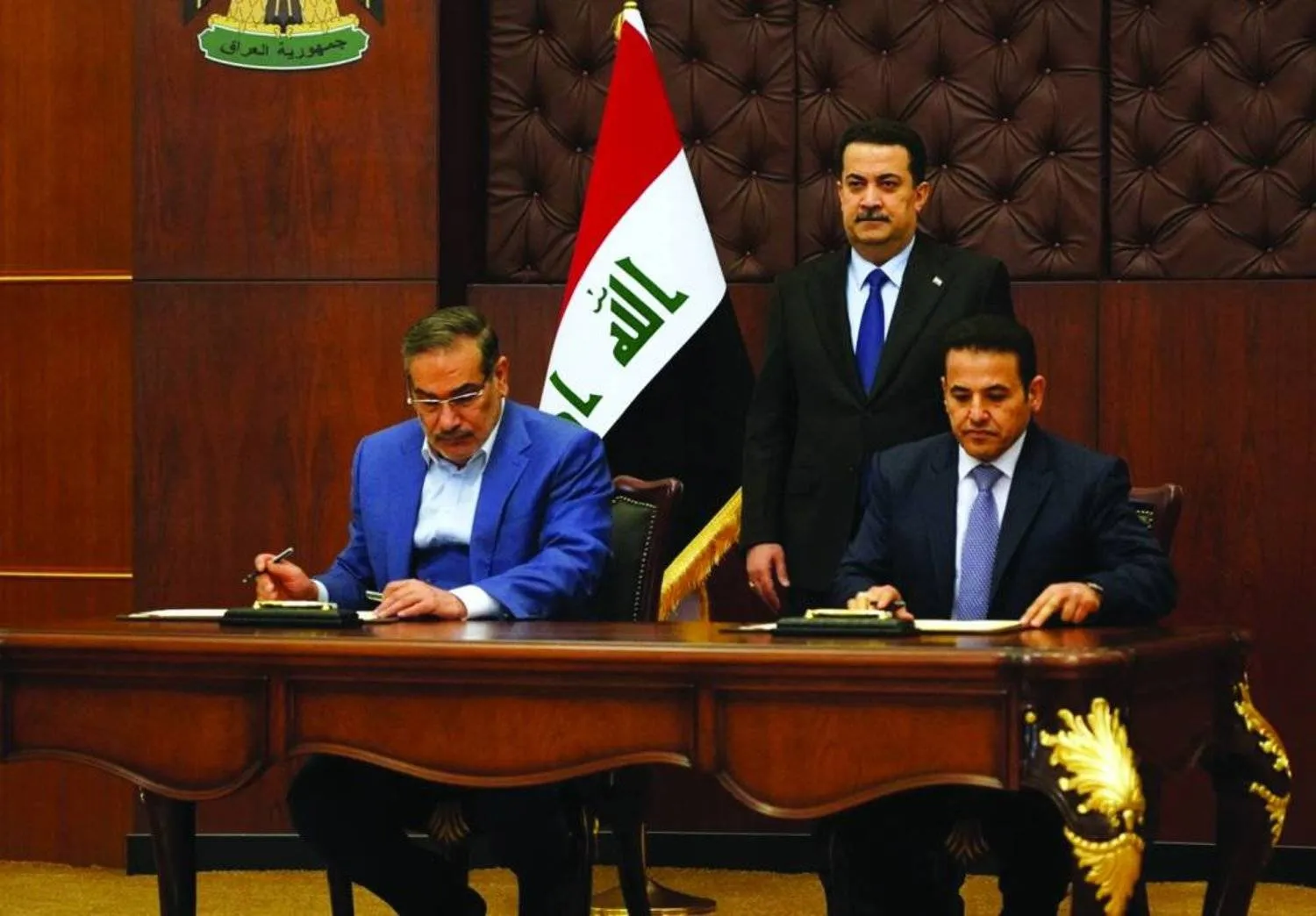Iraq anticipated a potential Iranian strike against the Kurdish opposition groups in the Kurdistan region, through tours conducted by National Security Advisor Qasim Al-Araji to Baghdad, Sulaymaniyah and Tehran.
In March, Prime Minister Mohammad Shia al-Sudani’s government signed a security protocol for cooperation and coordination with Iran, on the sidelines of a visit by the Secretary of the Iranian Supreme National Security Council, Ali Shamkhani, to Baghdad.
Since then and until the beginning of May, the Iraqi Border Guard forces set up more than 30 surveillance towers in the Kurdistan region, on the Iraqi-Iranian border, to prevent smuggling from both sides, according to a security report.
Last week, Al-Araji discussed with the military attaché at the Tehran embassy in Baghdad, measures to secure the borders between the two countries.
Al-Araji’s office reported that he had “received a directive from Sudani to travel to the Kurdistan region to discuss the same issue with officials there.”
Meanwhile, Iranian officials who visited Iraq, since the beginning of 2023, focused on the matter of “armed Kurdish groups opposing Tehran, which are active in areas of the Kurdistan region.” Tehran has always repeated that it “will not, under any circumstances, accept threats from Iraqi soil.”
During a meeting earlier this month, Al-Araji discussed with the Minister of Interior of the Kurdistan Region, Rebar Ahmed, securing the borders with Iran, before the Iraqi official traveled to Sulaymaniyah to meet the leader of the Patriotic Union, Bafel Talabani.
The two Kurdish officials said, in separate statements, that the security authorities in the region were working to complete the procedures stipulated in the “security report”.
Various Kurdish sources noted that the Kurdish parties were facing difficulties in dealing with the Iranian Kurdish opposition groups. In fact, a number of those belong to leftist currents that have historical ties and interests with local groups.
Other sources said that the issue “goes beyond historical national ties, and involves political maneuvers related to the internal conflict in the Kurdistan region.”
In Iran, Al-Araji met on Monday with the Secretary of the Iranian Supreme National Security Council, Ali Akbar Ahmadian. According to Iraqi sources, the latter received Iraqi pledges to control the borders, and messages from Kurdish parties about “guarantees not to allow any opposition group to target Iran’s interests.”
However, Kurdish sources stressed that Iran wanted to “expel these groups from Iraqi territory.”
Ahmadian told the Iraqi delegation that Tehran wanted “to end the presence of the Iranian Kurdish opposition parties in the Kurdistan region.”
He described the security protocol signed between the two countries as “a road map that guarantees the security and stability of the common borders.”









